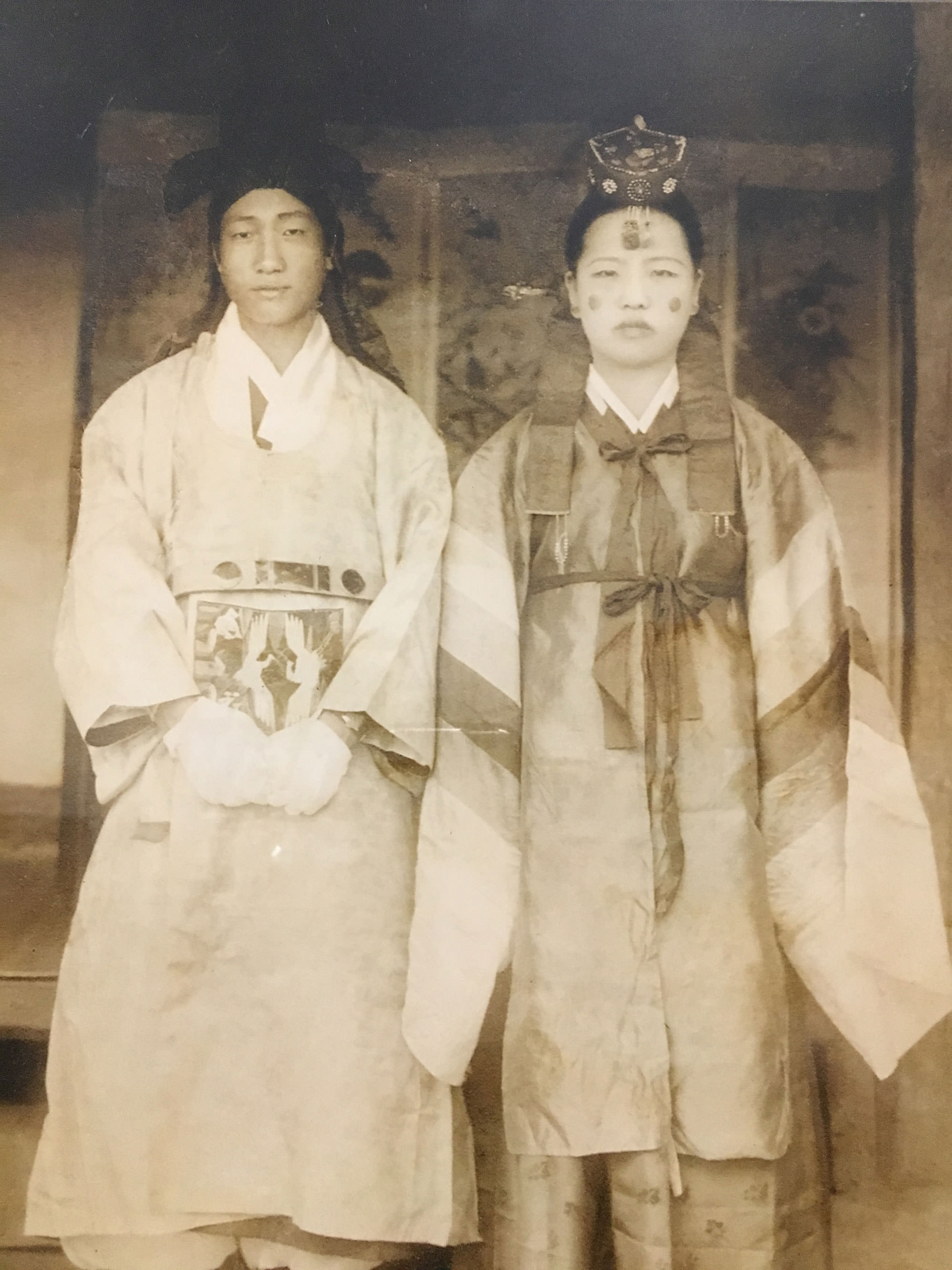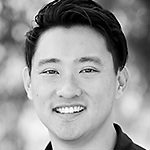
Every morning at 5 a.m., my grandmother woke up to pray. Her prayers were modest and reserved entirely for her family. She prayed for her living children, grandchildren, great-grandchildren, and all their extended family. She whispered over each name as the dawn broke gently into its morning light, giving each one care and attention.
I heard this prayer exactly twice — once when I was a teenager and the second time over a decade later. Her prayers had barely changed in all that time. If you believe, as I do, that prayers are often the reflections of our hopes, it would seem that my grandmother, Kim In Tae, held none for herself. My prayers, in contrast, have almost always been centered on ambitions — tests, careers, love life. These sorts of prayers were entirely absent from her morning ritual. Could it be true that my grandmother had no hopes or dreams of her own?
My grandmother died of a sudden and unexpected stroke on Christmas Day in 2017. She was 90 years old. When I got home from the hospital, the first thing I saw was her empty prayer chair. As I stood over it, I grieved not only for her, but for all her prayers, which had covered our family like a warm, protective film. I suddenly felt naked — grasping for that thing I didn’t notice until it was gone.
I also found myself wondering if she felt like her prayers had been answered. Otherwise, what was the point of all those hours and years of uttering the same prayer again and again? If the sum of her hopes was indeed pinned to her family, had we lived up to them? Was there some secret wish she had left on the table?
Did she feel fulfilled at the end of her life?
Fragile Hopes: Life Under Occupation
My grandmother was born in 1926 in Obneri, a neighborhood of Seosan, a city in the western province of South Korea. Her father was a tenant farmer who tended a rice paddy. With his extra time, he pounded some of his harvested rice into gwajul, a popular Korean snack. With the supplemental income he earned from selling gwajul, he managed to send all four of his children to school — an uncommon luxury in those days.
At the time, Seosan was under Japanese occupation. Many young girls were lured abroad by local recruiters and were eventually ensnared into a system of sexual slavery instituted by the Japanese military. My grandmother was spared because she was enrolled in school.

Though she was fortunate to escape a life of bondage, she grew up aware of her surrounding state of oppression. A Japanese name, Ganemoto Harue, was imposed upon her. The name had no meaning, simply a sterile product of a hollow bureaucracy. Though her village was peaceful, she heard rumors from neighboring towns that any show of resistance would be met with brutal reprisals. Having been born into this political reality, she internalized a certain helplessness that accepted this ethnic hierarchy as the normal state of affairs.
Despite these indignities, she continued to see the best in people. She loved attending school, although it was run by the Japanese. She spoke fondly of her Japanese neighbors who generously shared part of their harvest with her family every year. She even remembered the name of her teacher, Shimada, who had praised her ability to write and speak Japanese.
My grandmother understood what a privilege it was for her to be able to attend school. Her desire at the time was to continue her education, and perhaps attend a women’s college where she could be trained to be a teacher. Had she been born in a different time or place, perhaps she would have been free to pursue this path. Instead, rumor had spread that unmarried women were being “recruited” by the Japanese army, so her family decided it was safer to arrange her marriage. She married my grandfather, Myung Ghee Chang, when she was 16 years old. Her dream of continuing her education never came to pass.
A Bright Light and Then, Silence
More than anyone else in her life, she loved her brother, Kim Hui Tae. My grandmother remembered the way he’d immediately run out to retrieve firewood when he noticed her shivering from the cold, or how he’d come home with an extra treat for her when he got back from school. He was the precious jewel of the family, the most highly educated among the siblings, the one who was supposed to make it.
A natural leader, he was popular among his classmates. He was also an idealist full of conviction. He became involved with a student group called Hakseng Yunmeng, an organization reputed to have communist sympathies. When the Korean War broke out, his affiliation with this student group put him in danger. Social relations had become toxic in Obneri. Neighbors who had grown up together grew suspicious of one another. Mere accusations were enough to land whole families in prison or in front of a firing squad.
Knowing that his political associations put his family in danger, Hui Tae fled to the nearby town of Ohnamri, where he hid in the attic of my grandfather’s house. He remained hidden there until the end of the war.
It is not entirely clear how he was discovered, but when the state police eventually captured him, he was chained up along with the other suspected communists in the area and marched back to Obneri. He was executed and buried in a mass grave on the outskirts of town. He was only 23 years old.
Kim Hui Tae was a vibrant light and was only just discovering his voice in the world. He carried the hopes of his family, and still he dared to hope for something more. For it, he was cut down in the prime of his life in the most anonymous of ways. His death cast a shadow over the rest of my grandmother’s life and an ethos of silence settled deep into her psyche.
I believe that many of her own hopes and ambitions, the ones she might have held out for herself, were buried alongside her brother.
A Woman’s Place
In the spring of 1947, my grandmother gave birth to a son, Myung Sang Hoon. As the first son in an extended family full of daughters, he was feted as a prince from his birth.
My grandfather, always stern and expressionless, transformed into a doting husband and father. He spared no expense to care for both his wife and firstborn son. Despite living under the constant threat of war, my grandmother remembered this as the happiest time in her life.
But Sang Hoon never measured up to his father’s lofty expectations. His father wanted him to be strong, masculine, ambitious. Instead, he was artistic, musical, comedic. To appease his father, he learned how to lie. He lied about joining the ROTC, when in reality, he was spending his after-school hours running with a local gang. His father made him join the military, but Sang Hoon escaped every time he had a chance.
Since women were expected to raise the children, my grandmother blamed herself for Sang Hoon’s shortcomings and felt that she had failed her husband. As a wife, she was also expected to be subservient to her husband’s leadership. So, as my grandfather became increasingly draconian in his approach to discipline, my grandmother felt powerless to intervene on her son’s behalf as he withered under the pressures of being the eldest son.
Sang Hoon’s lies continued until his entire life became a lie. He turned to the bottle and deteriorated, dying at the age of 41 from alcoholism. My grandmother blamed herself. She had chosen to be the obedient wife, to stay silent as her son struggled under the yoke of expectation. She felt that her silence had cost her the great hope in her life, for she knew no greater hope than the hope she had for her child.
Finding Hope Again
“History has failed us,” writes the novelist Min Jin Lee, “but no matter.”
In the search for my grandmother’s hopes, I found only the constraints that had smothered them. An imperialist state had robbed her of higher education. Bitter partisanship had buried her beloved brother — her shining light — in a mass, unmarked grave. A patriarchal system had silenced her maternal voice, one that might have shielded her son from the blunt force trauma of her husband’s exacting nature. History had failed her, but no matter — she had to keep on living.

As the custodian of her story, I’m faced with the temptation to recast her as some kind of heroine who resisted these systems of oppression. The truth is my grandmother was no social activist; she was obedient to the powers that were and be. She survived by quietly navigating the cracks, believing that she’d eventually outlast her oppressors if she kept her head down and bore what she must. While we commemorate the stories of freedom fighters, we tend to overlook the vast majority of regular people like my grandmother whose own hopes were sacrificed on the altar of someone else’s ideologies, ambitions, or societal norms. Their stories deserve to be heard as well.
After reflecting on my grandmother’s life, I came to realize that her prayers, which seemed to neglect her own wishes and desires, did not reflect some kind of humility, but instead spoke to the limits of her imagination. The constraints of the world she grew up in narrowed the boundaries of what she considered possible; the hopes she might have had for herself had been stifled.
In light of this realization, I asked a new question: What other recourse does a single, powerless woman have than to wake up at 5 a.m. every morning to pray? My grandmother did the only thing she could, and she did it with an impeccable diligence.
I’ve come to the conclusion that hope is innately resilient. Her prayers for her family represented what she knew she could ask for, the one aspect of life she had some control over. Her hope was rooted not in her present, where loss and tragedy had cast their shadows, but in our futures, which were boundless and full of light.
Now that she’s gone, I realize that my own prayers, which have always seemed selfish by comparison, are just extensions of hers. She prayed for us to be healthy and whole, free to flourish in ways she was never allowed to. My dreams and explorations are expressions of the words she couldn’t say for herself.
Understanding this has provoked a shift; any lingering sense of obligation or burden has given way to something more akin to purpose. I didn’t have to do anything or achieve any kind of greatness. I was enough. Her family
was enough.
Her prayers, as it turns out, had already been answered.

Christopher Paek is a social scientist and researcher with a doctorate in international development. In his spare time, he reads and writes on race, politics, and Korean/Asian American identity. Currently based in Washington D.C., Christopher is also working on a personal passion project to document and produce stories about his family’s history.